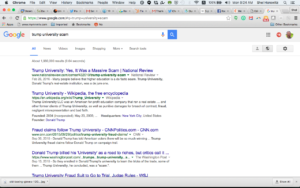This week, a judge ruled that the Business Improvement District in Northampton, Massachusetts was organized without following certain laws. The judge ordered the immediate dissolution of the BID, putting several people out of work and leaving the city bereft of services it had performed.
For the past few years, the BID has cleaned the streets of downtown Northampton, maintained its planters, helped the city with snow removal, funded the holiday light decorations, and organized or assisted with various special events to promote the downtown business and arts communities.
No one doubts that the organization did great work. But from its inception in 2009, it’s been fraught with controversy. Northampton BID was empowered by the City Council to negotiate contracts to perform these services in March, 2009—and just five weeks later—even before the BID was officially formed in July, 2009—a group of dissenting downtown property owners filed a suit claiming the petition signatures for the formation of the BID were not properly collected or certified. The BID could only form if at the owners of at least 297 properties within the proposed district agreed.
There was controversy over whether the enabling law wanted the count based on parcels or property owners—an important distinction, since many property owners owned multiple parcels. As the BID collected them, owners were allowed to vote once for each piece of property they owned or controlled in the district. One owner signed 15 times.
But there was also controversy about several other areas:
- Had enough diligence been expended to verify that the signatures were legible and that they were from people with ownership or delegated authority? The judge invalidated 63 that he could not read, bringing the critical mass well below 297, and strongly criticized the city government for failing to check the signatures carefully.
- Was it ethical to redraw the district’s boundary lines prior to formation, to include more properties owned by supporters (including Smith College, by afar the largest landowner in the downtown area) and exclude several owned by opponents?
- Membership fees paid for all the services the BID performed. When the BID was accepted in 2009, membership was voluntary. But a change to state law in 2012 made membership compulsory.
- A July, 2014 vote on whether to extend the BID’s charter through 2019 used voter eligibility rules that excluded all the people who were forced to join in 2012, and passed 40-0.
As someone who has written two books and used to write a column on business ethics, I find that these other issues sway me. No matter how much good the BID does, it cannot justify its actions as an organization that tramples on the rights of its opponents.
When you tell people that an organization has a voluntary membership, and then you make it mandatory to join and pay dues, that’s wrong. And it’s even more wrong to then exclude the recalcitrant members from voting on the organization’s future. It brings to mind words like “deceitful” and “slimy.” And yes, when your charter depends on certifying participation, you make sure those participants are properly certified.
The Sky Won’t Fall
It is a hardship when people are put out of work just before the holidays, with no notice. I feel sorry for the BID’s workers, and I hope the business community steps forward to hire those folks, even if the jobs are temporary. While it would have made more sense to me if the judge had ordered a more gradual phaseout, letting the organization honor its commitments and its payroll for a couple of months to deal with past obligations and commitments already made, I disagree with BID proponents who seem to think the sky will fall.
Yes, it will be a scramble to get a holiday lighting program in place in time for the retail season. But it can be done. Presumably, it will not be difficult to transfer the contract from BID to the Chamber of Commerce or some other organization.
Yes, it’s going to impact the downtown when the BID employees who’ve been picking up trash stop doing it. But the city has a Department of Public Works.
The BID did not exist until five years ago. And the downtown thrived. When another program, the Northampton Honor Court, stopped picking up the downtown trash, it was a hardship and the downtown definitely looked more tired. But others stepped into the breach.
Again, I support the good work that the BID performed. But I do not support a process that’s tantamount to bullying, don’t support a double standard for BID supporters and opponents, and think it’s completely immoral to bring the organization in as a voluntary effort and then change the rules. Yes, I recognize that it was the state, and not the local BID, that changed the rules, but the blame for rigging the election to continue under the new terms is most definitely local, and deeply unfair.









